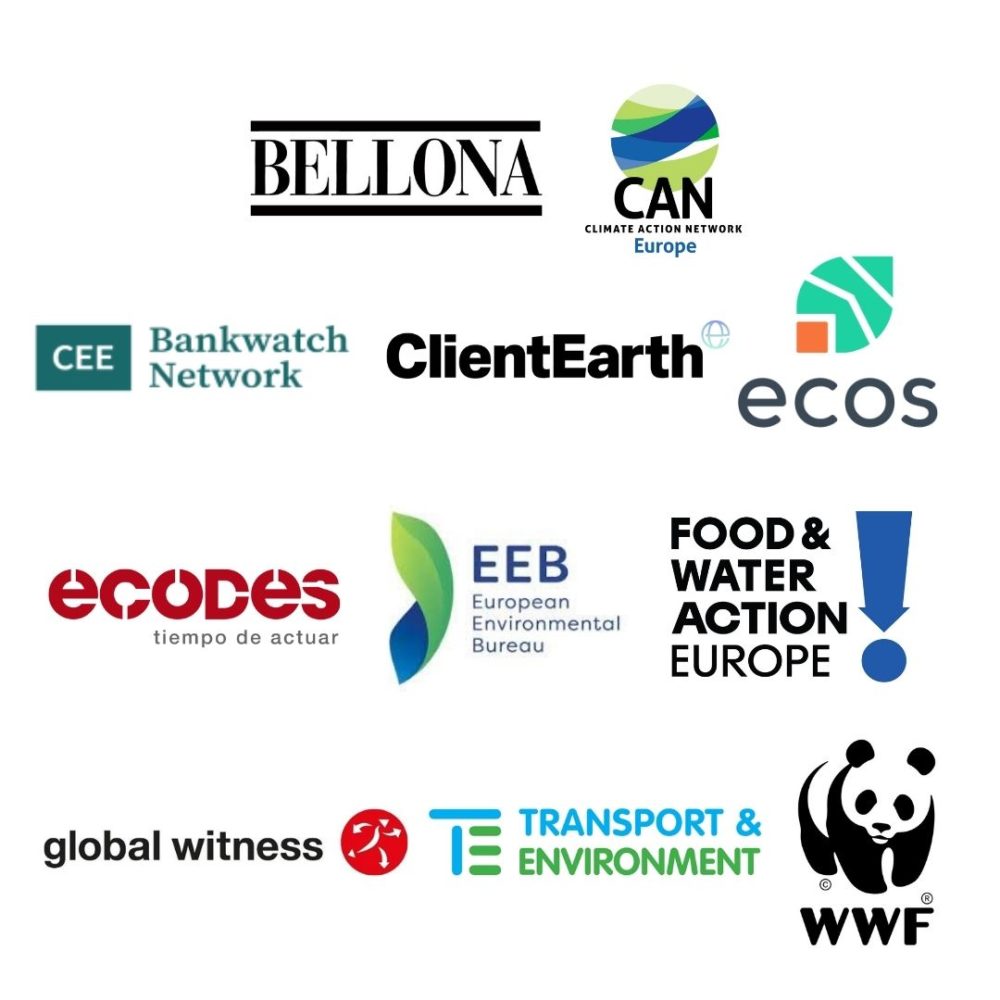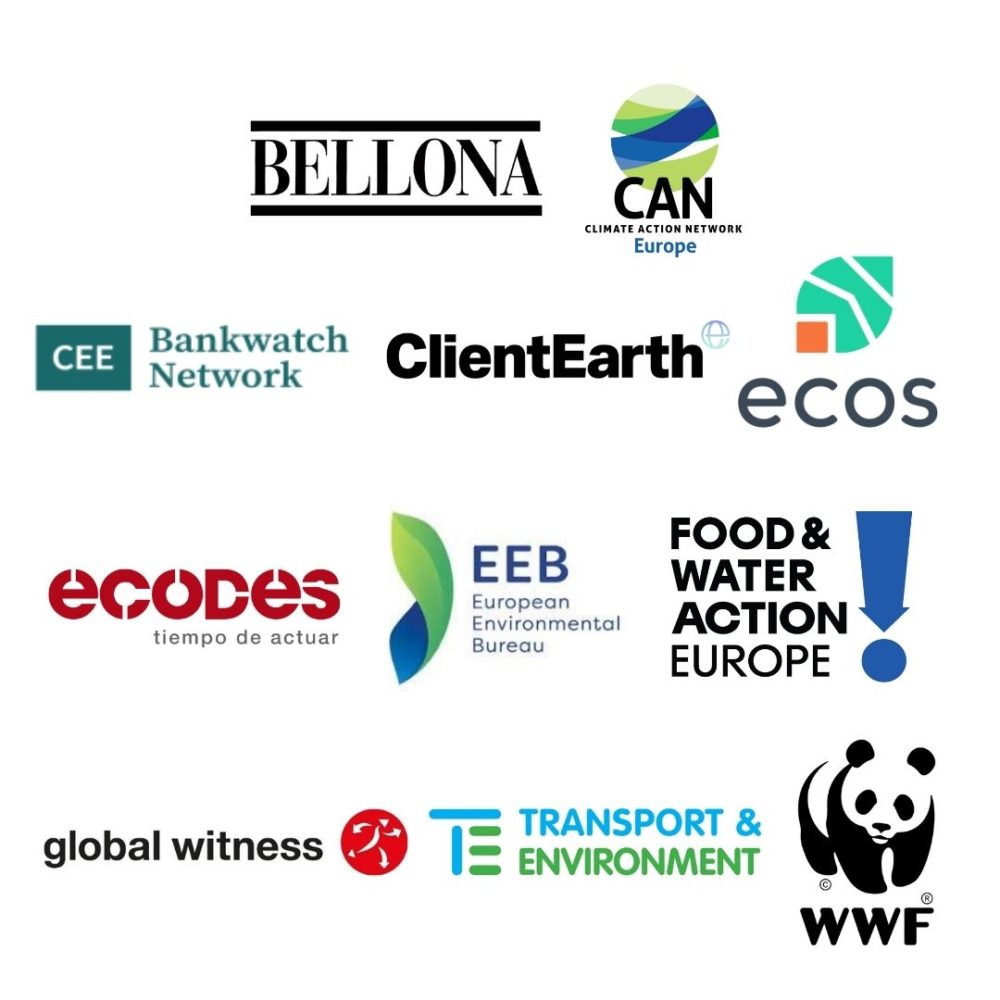Only if hydrogen is used in hard-to-abate sectors and produced from additional renewable electricity, can it play a genuine role in limiting temperature increase to 1,5°C, and only as such it can be avoided that increasing renewable electricity demand for renewable hydrogen production will compete with renewable electricity that should go into direct electrification processes across the economy.
Brussels, November 5, 2021
To: President Ursula von der Leyen
Cc: Executive Vice-President Timmermans, Commissioner Simson, Commissioner Vălean, Commissioner Breton, Mr Kurt Vandenberghe, Mr Maggi, Ms Marquez Uriarte and Ms Chapuis, Mr Joan Canton, Ms Juul-Jorgensen, Ms Mechthild Wörsdörfer
Hydrogen production for industry and efuels for transport need to come from truly
additional renewable electricity
Dear President von der Leyen,
The energy price crisis, largely due to high fossil gas prices, is hitting Europe hard. Future EU policies need to avoid further reliance on gas, coal and oil, and to ensure a rapid phase out of fossil fuels including gas. The European Commission itself, with you in the lead Madame President, has said that Europe is too reliant on gas and that we need to invest in renewables which come at stable and decreasing costs.
The delegated act currently under preparation under the Renewable Energy Directive, needs to ensure that hydrogen will not only be produced from renewable electricity but from additional renewable energy generation capacities. Reliance by electrolysers on grid electricity must be kept to an absolute minimum as current grid electricity still relies on fossil fuels in most EU member states.
Only if hydrogen is used in hard-to-abate sectors and produced from additional renewable electricity, can it play a genuine role in limiting temperature increase to 1,5°C, and only as such it can be avoided that increasing renewable electricity demand for renewable hydrogen production will compete with renewable electricity that should go into direct electrification processes across the economy. In the revision of the Renewable Energy Directive, the Commission has proposed two hydrogen-related sub-targets for 2030: half of the hydrogen used in industrial processes should come from renewable sources, and 2.6% of transport fuels should come from renewable hydrogen-based fuels.
The Commission’s targets would require about 500 TWh of renewable electricity generation to meet the goal for hydrogen production by 2030, comparable to the electricity used annually by EU member states such as France or Germany and more than the power produced by all current wind generation across the continent. This means that the renewable electricity produced from these wind turbines could not be used for the urgently needed direct electrification of heating in buildings or road transport. It would instead be diverted to meet the proposed 2030 hydrogen targets.
Most importantly, the use of hydrogen must deliver significant emissions savings of at least 70%, compared to fossil fuels. This means that virtually all of the energy used for hydrogen production must come from renewable energy sources.
The Renewable Energy Directive lays out clear conditions to ensure that electrolysers do not rely on carbon-intense grid electricity: either renewables provide a very high average share of grid electricity in the market where the hydrogen is produced or an electrolyser must have a direct connection to a new renewable source, without a grid connection. A third option would allow electrolysers to source renewables from multiple renewable assets via the grid in order to ensure sufficiently high operating hours. Several safeguards were added to ensure that the rules applicable to this third option were not fundamentally different and would deliver the same level of at least 70% emission savings.
These rules are additionality (i.e. obliging hydrogen producers to add new renewable electricity generation capacity to the market or to contribute to the financing of a matching volume of new renewable energy capacity), a temporal and geographical correlation between the renewable electricity generation and the hydrogen production, linked by a bilateral renewables power purchase agreement (PPA).
We understand that over the last weeks and months, some industry actors and member states have been pushing strongly to water down the principle of additionality, mainly by not requiring hydrogen producers to invest in new renewable energy installations, or asking for existing renewable installations to count towards additional capacities. Furthermore, some industry actors have asked to weaken the temporal correlation by assuming a high number of running hours for the electrolysers, leading to increased reliance on fossil fueled grid power instead of sourcing renewable electricity when it is available on the grid. Such proposals go against the EU’s ambitions for an integrated energy system, whereby electricity demand would be steered towards periods when renewable energy is abundantly available.
A decade ago, the EU set high targets for biofuels in transport, leading to a boom of crop-based biofuels, especially of the worst types of biofuels like palm oil. We believe it is important for the Commission to draw on the lessons learnt from EU biofuels policies, which ignored indirect effects such as land use changes and deforestation, resulting in disastrous unintended consequences and increased, rather than reduced carbon emissions. The EU must ensure that hydrogen and e-fuels deliver real emissions savings from the start. Therefore deploying additional renewables must be at the heart of the Delegated Act on RFNBOs.
We thank you for taking these points into consideration and would welcome the opportunity to discuss these issues with you in more detail in view of the public consultation ahead of the final publication of the delegated act.
Yours sincerely,
Chiara Martinelli,
Director Climate Action Network Europe, on behalf of
Jonas Helseth, Bellona
Maria Kleis Walravens, ClientEarth
William Todts, Transport & Environment
Víctor Viñuales, ECODES
Justin Wilkes, ECOS
Petr Hlobil, CEE Bankwatch Network
Jeremy Wates, European Environmental Bureau
Frieda Kieninger, Food & Water Action Europe
Mike Davis, Global Witness
Ester Asin, WWF EPO






